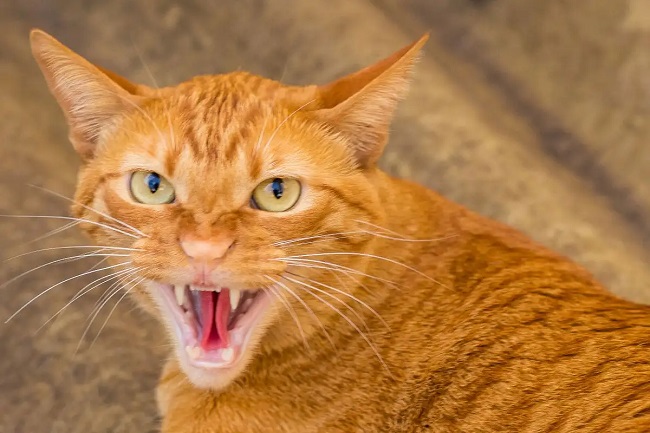While cats are often lauded for their independent yet affectionate nature, some cat breeds have earned a reputation for being more aggressive than others. Aggression in cats can manifest as scratching, biting, hissing, or overall disruptive behavior.
This article offers a deep dive into some of the Most Aggressive Cat Breeds, shedding light on their characteristics, their aggressive traits, and ways to manage this behavior.

A Look at Aggressive Cat Breeds
Here are some Most Aggressive Cat Breeds:
Read Also:
Siamese Cats
Siamese cats, while adored for their striking appearance and affectionate nature, are often considered one of the Most Aggressive Cat Breeds. Known to be highly territorial, Siamese cats may display aggression when they feel their space is threatened.
Bengal Cats
Bengals are another breed known for their aggressive tendencies. Their wild ancestry can contribute to their assertiveness. Bengals are highly energetic and can become aggressive if they do not receive enough physical and mental stimulation.
Maine Coon Cats
Maine Coons are typically friendly and social. However, their size and hunting instincts can sometimes translate into aggressive behavior, particularly if they feel their territory is threatened or during play.
Sphynx Cats
The hairless Sphynx breed, with its extroverted and playful nature, can sometimes be seen as aggressive. This is especially true if they are not given enough attention or stimulation, as they require significant social interaction.
Unraveling Aggression in Cats
When discussing the Most Aggressive Cat Breeds, it’s essential to remember that aggression can be influenced by various factors, including environment, upbringing, socialization, and health.
Aggression does not necessarily denote a dangerous or ‘bad’ cat; rather, it often indicates a form of communication or response to a certain situation.
Environment and Upbringing
Cats who are not adequately socialized during their early life stages may display more aggression. The same goes for cats that have had traumatic experiences or lack mental and physical stimulation in their environment.
Health Factors
Medical issues can often be a root cause of aggression in cats. Pain, discomfort, or illnesses can result in a cat becoming more irritable and aggressive. It’s always crucial to consult with a vet if a normally docile cat begins showing signs of aggression.
Managing Aggression in Cats
While certain breeds might have a reputation for aggression, it’s important to remember that every cat is an individual. Aggressive behavior can often be managed and reduced with the right approach.
This includes proper socialization from a young age, providing plenty of mental and physical stimulation, respecting the cat’s space, and maintaining regular vet check-ups to ensure any potential health issues are addressed promptly.
Key Takeaways
Some cat breeds, including Siamese, Bengal, Maine Coon, and Sphynx cats, are often perceived as more aggressive.
Aggression can be influenced by various factors, such as environment, upbringing, socialization, and health issues.
Aggressive behavior in cats can often be managed with proper socialization, mental and physical stimulation, and regular veterinary care.
With understanding and patience, even cats with a reputation for aggression can become beloved and loving companions. The key lies in understanding their behavior and meeting their physical, social, and mental needs.
Read Also:
Conclusion
In understanding the Most Aggressive Cat Breeds, it’s evident that several factors can contribute to a cat’s aggression, and it’s not simply a matter of breed.
While Siamese, Bengal, Maine Coon, and Sphynx cats may have a reputation for being more assertive, remember that every cat has its unique personality and characteristics.
























